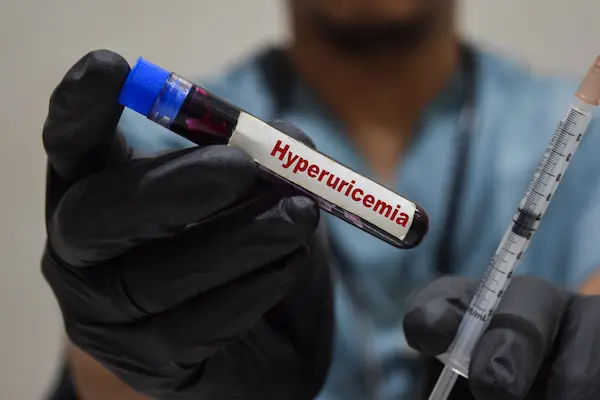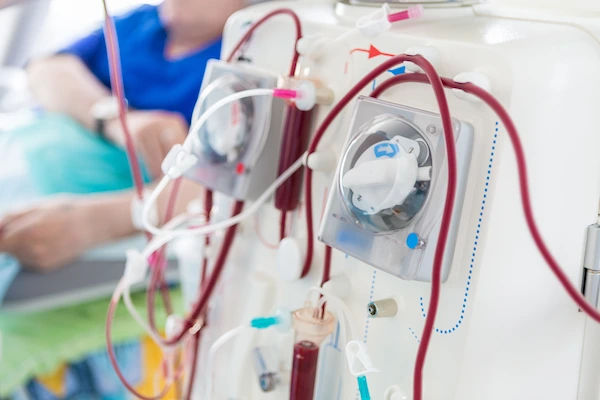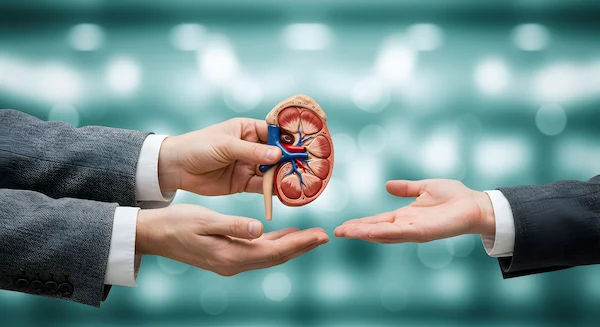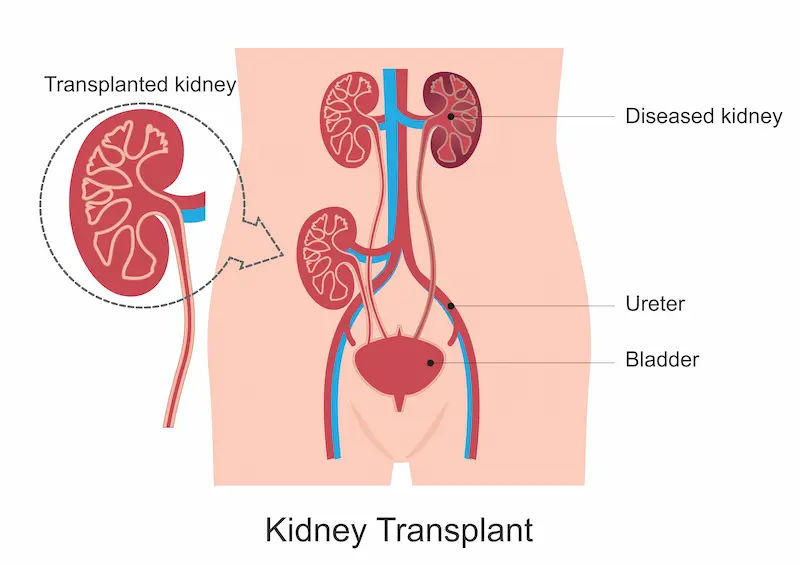Your Ultimate Guide to Kidney Health: How to Protect Your Vital Filters
Know about kidney health, why it is important, and daily habits for kidney health. Substances to use with caution and proactive measures for long-term health and more.

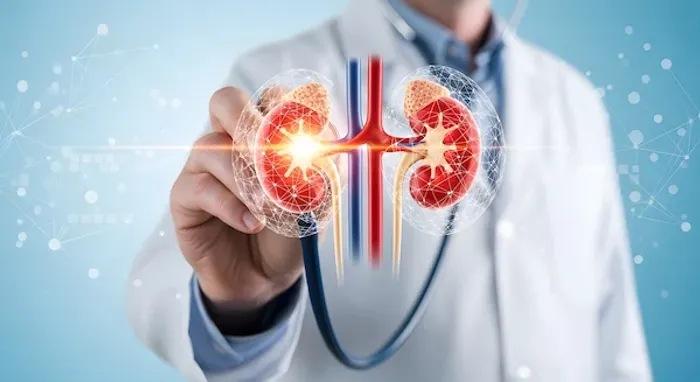
Introduction
Your kidneys are the unsung heroes of your body. Working tirelessly around the clock, these two bean-shaped organs perform the critical task of filtering waste, balancing fluids, and regulating minerals from your blood. Yet, we often take them for granted until a problem arises. Kidney disease is frequently called a "silent killer" because symptoms may not appear until significant, irreversible damage has occurred. The good news? You have immense power to protect your kidneys through conscious daily choices. This comprehensive guide will walk you through everything you need to know—from understanding their vital functions to implementing practical, life-long habits for optimal renal health. Let's dive in and learn how to safeguard these essential filters for years to come.
Why Kidney Protection is Non-Negotiable
Think of your kidneys as your body's most sophisticated water filtration plant. Every day, they process about 200 quarts of blood to sift out about 2 quarts of waste products and extra water, which become urine. But their job description is much broader than just waste management.
Consult a Top Nephrologist for Personalised Advice
What Your Kidneys Actually Do (Beyond Making Urine)
Beyond filtration, your kidneys wear many hats. They act as master chemists, precisely regulating the levels of sodium, potassium, calcium, and phosphorus in your blood—all essential for nerve function, muscle contraction, and bone health. They also produce hormones that control blood pressure, stimulate red blood cell production to prevent anaemia, and activate vitamin D for strong bones. When your kidneys are compromised, this delicate balance is disrupted, leading to a cascade of health issues throughout your body.
The Silent Progression of Kidney Disease
The most alarming aspect of kidney disease is its stealthy nature. In the early stages, there are often no obvious signs of early kidney damage. You might feel perfectly fine even as your kidney function declines. Symptoms like fatigue, swelling in the ankles, puffiness around the eyes, or changes in urination typically manifest only after the disease has advanced. This is why proactive prevention is far more effective than reactive treatment. Understanding the causes of chronic kidney disease—primarily diabetes and high blood pressure—empowers you to take control.
The Foundation of Kidney Health: Daily Habits
Protecting your kidneys starts with the simple, consistent choices you make each day. These foundational habits are the cornerstone of long-term renal wellness.
Hydration Hero: Are You Drinking Enough Water?
Water is the essential medium that helps your kidneys flush out toxins. Staying adequately hydrated is one of the simplest and most effective ways to prevent kidney failure and stones. But how much is enough? While the "8 glasses a day" rule is a good starting point, individual needs vary based on climate, activity level, and overall health. A better indicator is the colour of your urine: aim for a pale, straw-like yellow. Dark yellow urine often signals dehydration, forcing your kidneys to work harder.
The Kidney-Friendly Plate: Principles of a Healthy Diet
What you eat directly impacts how hard your kidneys have to work. A kidney-friendly diet plan isn't about deprivation; it's about balance and smart choices. Focus on fresh, whole foods: fruits, vegetables, whole grains, and lean proteins. The two dietary components that require special attention for kidney health are sodium and protein.
Sodium: The Stealthy Saboteur
High sodium intake is a primary driver of high blood pressure, which is a leading cause of kidney damage. Sodium causes your body to retain fluid, increasing the volume of blood your kidneys must filter and putting strain on their delicate blood vessels. Avoid processed foods, canned soups, and salty snacks. Instead, flavour your food with herbs, spices, and lemon juice.
Protein Power: How Much is Too Much?
Protein is vital, but excessive consumption, especially from red meat, can overwork your kidneys. The waste product of protein metabolism, urea, must be filtered out. Most adults need only 0.8 grams of protein per kilogram of body weight. If you have existing kidney issues, your doctor may recommend even less. Prioritise plant-based proteins like beans and lentils, which are gentler on your renal function.
Managing Underlying Health Conditions
For many, the greatest threat to kidney health comes from other chronic conditions. Effectively managing these is arguably the most powerful step you can take.
Blood Pressure and Your Kidneys: An Inseparable Link
Your kidneys and blood pressure are locked in a feedback loop. High blood pressure can damage the blood vessels in the kidneys, impairing their function. Conversely, damaged kidneys struggle to regulate blood pressure. Keeping your blood pressure below 120/80 mm Hg is a critical goal for protecting your kidneys. This involves diet, exercise, stress management, and, if prescribed, taking medication consistently. If your blood pressure readings are consistently high, it's crucial to seek professional guidance. If your condition does not improve after trying these methods, book a physical visit to a doctor with Apollo24|7 for a comprehensive evaluation.
Blood Sugar Control: Shielding Your Kidneys from Diabetes
Diabetes is the number one cause of kidney failure. Persistently high blood sugar levels damage the tiny filtering units (nephrons) within the kidneys. If you have diabetes or prediabetes, meticulous blood sugar control is non-negotiable for how to improve kidney function naturally and preventing further damage. This means monitoring your levels, adhering to your medication or insulin regimen, and following a diabetic-friendly diet. Regular screening for microalbuminuria (small amounts of protein in the urine) is essential for early detection of kidney involvement. Apollo24|7 offers convenient home collection for tests like HbA1c and kidney function panels, making it easier to stay on top of your health.
Substances to Use with Caution
Everyday substances, including common medications, can pose a significant risk if not used responsibly.
Over-the-Counter Painkillers: The Hidden Danger
Nonsteroidal anti-inflammatory drugs (NSAIDs) like ibuprofen and naproxen are excellent for pain and inflammation, but can be harmful to the kidneys with frequent or long-term use. They reduce blood flow to the kidneys, which can cause damage over time, especially if you are dehydrated or have pre-existing conditions. Use them sparingly and always follow the dosage instructions. For chronic pain, consult a doctor for safer alternatives.
Smoking and Alcohol: Direct Assaults on Renal Function
Smoking directly damages blood vessels, including those in the kidneys, slowing blood flow and impairing function. It also increases the risk of kidney cancer. Alcohol, in excess, dehydrates the body and can cause sudden spikes in blood pressure, both of which strain the kidneys. Moderating alcohol consumption and quitting smoking are profound gifts you can give your entire body, especially your renal health.
Proactive Measures for Long-Term Health
Going beyond the basics, these proactive steps can solidify your kidney health for the future.
The Power of Movement: Exercise for Kidney Function
Regular physical activity helps maintain a healthy weight and control blood pressure and blood sugar—all key factors in protecting your kidneys. You don't need to run a marathon; a brisk 30-minute walk most days of the week can make a significant difference. Exercise also improves cardiovascular health, ensuring efficient blood flow to all your organs, including the kidneys.
Know Your Numbers: The Importance of Regular Check-ups
You can't manage what you don't measure. Regular health screenings are your early warning system. Key tests include:
Blood Pressure: Check at least annually.
Blood Glucose/HbA1c: To screen for diabetes.
Kidney Function Tests: A simple blood test for creatinine levels to estimate your GFR (Glomerular Filtration Rate), and a urine test to check for protein (proteinuria).
If you have risk factors like diabetes, high blood pressure, or a family history of kidney disease, more frequent testing is essential. Early detection of issues like proteinuria is critical for successful intervention.
Conclusion
Your kidneys are remarkable organs that deserve your attention and care. Protecting them isn't about a single grand gesture but about the sum of your daily decisions—choosing water over soda, vegetables over processed snacks, and a walk over inactivity. By understanding the profound link between lifestyle, conditions like hypertension and diabetes, and renal function, you empower yourself to be the primary guardian of your health. Start today. Incorporate even one or two of these strategies, and you'll be taking a significant step toward ensuring your kidneys continue their vital work efficiently for a lifetime. If you experience symptoms like persistent fatigue, swelling, or changes in urination, consult a doctor online with Apollo24|7 for further evaluation. Your future self will thank you.
Consult a Top Nephrologist for Personalised Advice
Consult a Top Nephrologist for Personalised Advice

Dr. Manju Kamal
Nephrologist
12 Years • MBBS,MD(General Medicine), DNB,DM(Nephrology)
Angamaly
Apollo Hospitals Karukutty, Angamaly

Dr. Raja Mahesh
Nephrologist
15 Years • MRCP
Chennai
Apollo Hospitals Greams Road, Chennai
(250+ Patients)

Dr. Hareesha Babu K
Nephrologist
25 Years • MBBS, MD (General Medicine), DM (Nephrology),FASN, FRCP(Glasg), FRCP (Edin)
Bangalore
Kidney & Hypertension Care, Bangalore

Dr. Pardha Saradhi
Nephrologist
9 Years • MBBS, MD-DNB (Gen. Med.), DNB (Nephro)
Hyderabad
Apollo Hospitals D R D O kanchanbagh, Hyderabad
(75+ Patients)

Dr. Kity Sarkar
Nephrologist
15 Years • MBBS,MD(Genl. Med.), DrNB(NEPHROLOGY)
Kolkata
Dr. Kity Sarkar's Clinic, Kolkata

